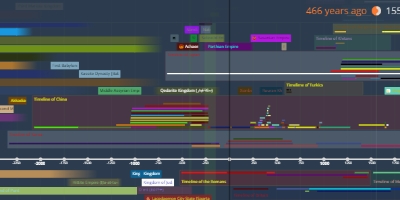Democratic Republic of Afghanistan / Republic of Afghanistan (apr 30, 1978 – apr 27, 1992)
Description:
The Democratic Republic of Afghanistan (DRA), renamed the Republic of Afghanistan in 1987, was the Afghan state during the one-party rule of the People's Democratic Party of Afghanistan (PDPA) from 1978 to 1992.The PDPA came to power through the Saur Revolution, which ousted the regime of the unelected autocrat Mohammed Daoud Khan; he was succeeded by Nur Muhammad Taraki as the head of state and government on 30 April 1978. Taraki and Hafizullah Amin, the organizer of the Saur Revolution, introduced several contentious reforms during their rule, such as land and marriage reforms and an enforced policy of de-Islamization alongside the promotion of socialism. Amin also added on the reforms introduced by Khan, such as universal education and equal rights for women. Soon after taking power, a power struggle began between the Khalq faction led by Taraki and Amin, and the Parcham faction led by Babrak Karmal. The Khalqists emerged victorious and the bulk of the Parchamites were subsequently purged from the PDPA, while the most prominent Parcham leaders were exiled to the Eastern Bloc and the Soviet Union.
After the Khalq–Parcham struggle, another power struggle arose between Taraki and Amin within the Khalq faction, in which Amin gained the upper hand and later had Taraki killed on his orders. Due to earlier reforms, Amin's rule proved unpopular within both Afghanistan and the Soviet Union. A Soviet intervention supported by the Afghan government had begun in December 1979, and on 27 December, Amin was assassinated by Soviet military forces; Karmal became the leader of Afghanistan in his place. The Karmal era, which lasted from 1979 to 1986, was marked by the height of the Soviet–Afghan War, in which Soviet and Afghan government forces fought against the Afghan mujahideen in order to consolidate control over Afghanistan. The war resulted in a large number of civilian casualties as well as the creation of millions of refugees who fled into Pakistan and Iran. The Fundamental Principles, a constitution, was introduced by the government in April 1980, and several non-PDPA members were allowed into government as part of its policy of broadening its support base. However, Karmal's policies failed to bring peace to the war-ravaged country, and in 1986, he was succeeded as PDPA General Secretary by Mohammad Najibullah.
Najibullah pursued a policy of National Reconciliation with the opposition: a new Afghan constitution was introduced in 1987 and democratic elections were held in 1988 (which were boycotted by the mujahideen). After the Soviet withdrawal from Afghanistan in 1988–1989, the government faced increasing resistance. 1990 proved to be a year of change in Afghan politics as another constitution was introduced that stated Afghanistan's nature as an Islamic republic, and the PDPA was transformed into the Watan Party, which continues to exist. On the military front, the government proved capable of defeating the armed opposition in open battle, as demonstrated in the Battle of Jalalabad. However, with an aggressive armed opposition and internal difficulties such as a failed coup attempt by the Khalq faction in 1990 coupled with the dissolution of the Soviet Union in 1991, the Najibullah government collapsed in April 1992. The collapse of Najibullah's government triggered another civil war that led to the rise of the Taliban and their eventual takeover of most of Afghanistan by 1996.
Added to timeline:
Date:
apr 30, 1978
apr 27, 1992
~ 14 years
